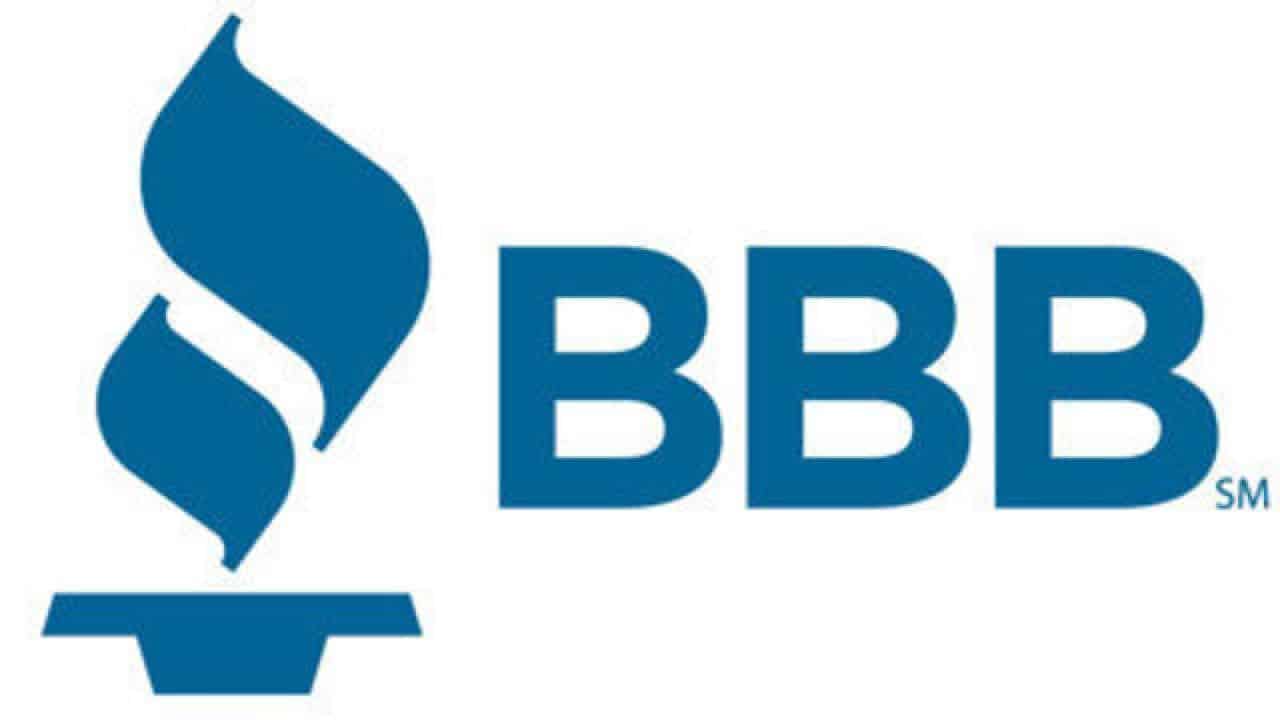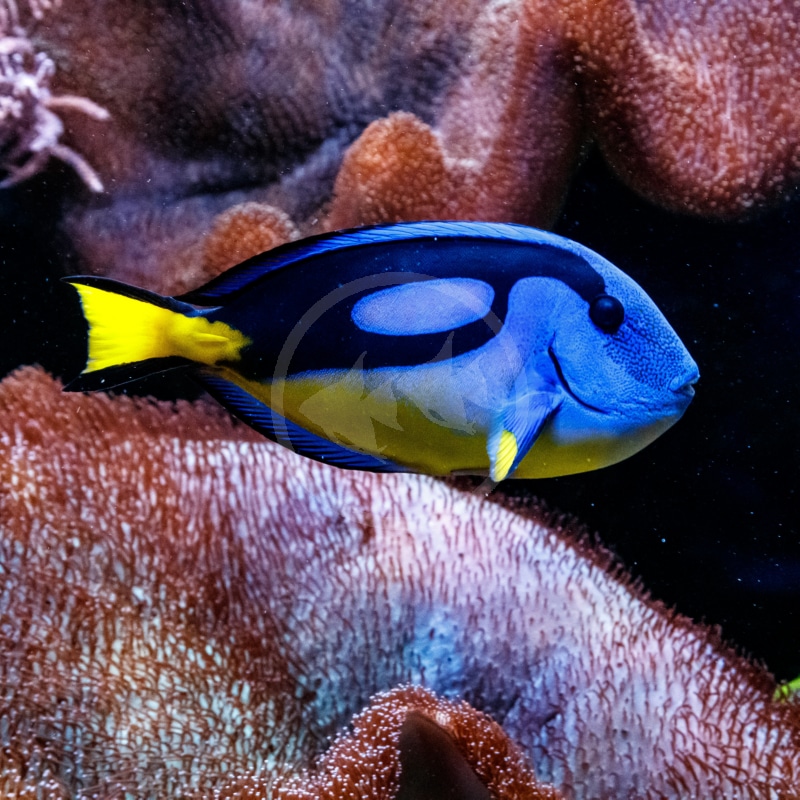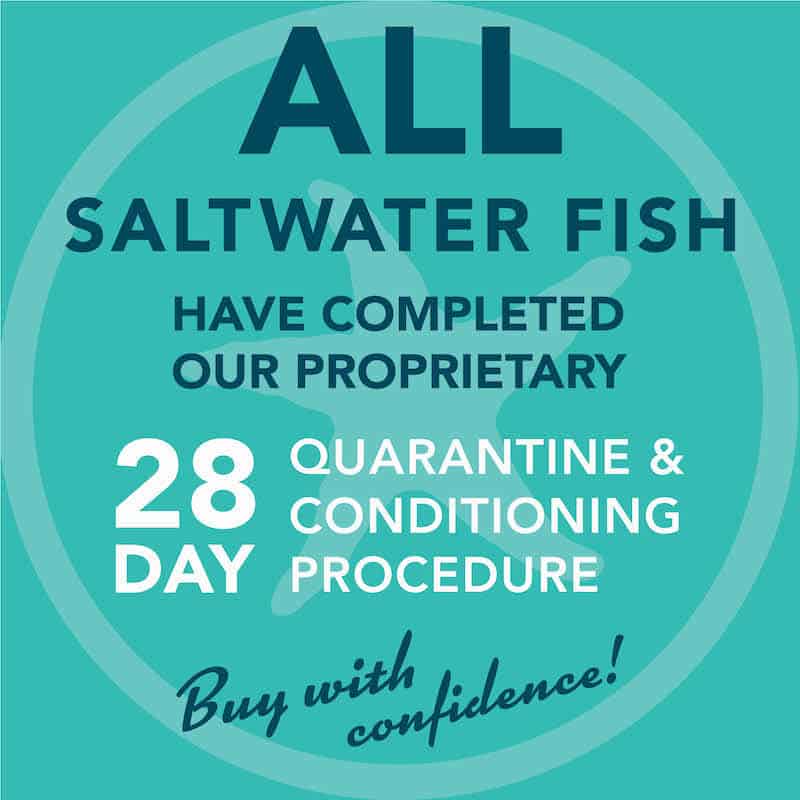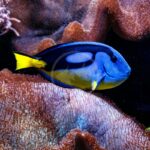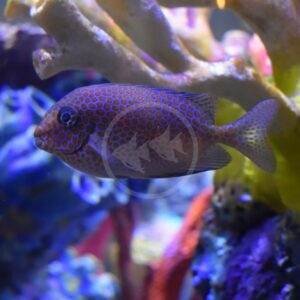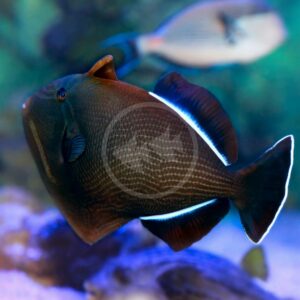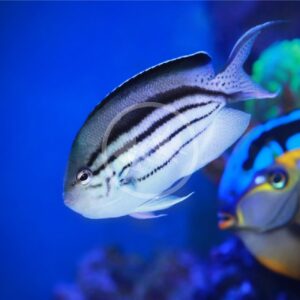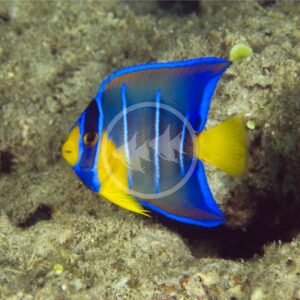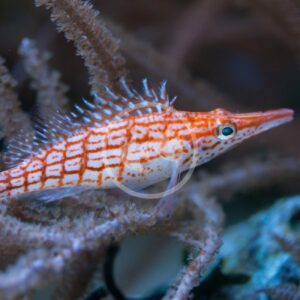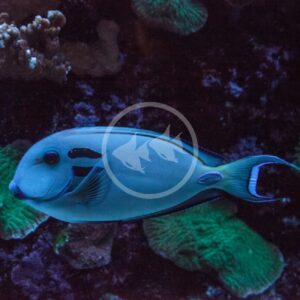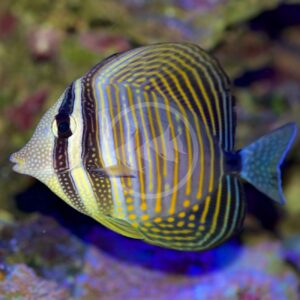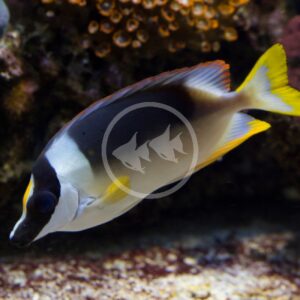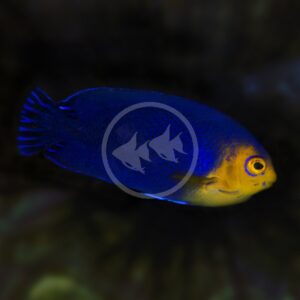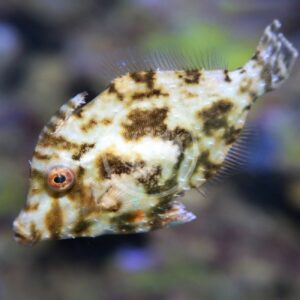Care Level: Moderate
Temperament: Peaceful
Reef Compatible: Yes
General Description: The Yellow Belly Blue Tang is a natural color variant of the widely distributed and popular Blue Tang (Paracanthurus hepatus), however this fish is predominately found in the waters of the Indian Ocean only. At smaller sizes, the Yellow belly blue tang could be mistaken for a Blue tang because they do not start to showcase their characteristic bright yellow belly until they’re at a larger size and/or more mature stage of life. While this fish can surely be a statement piece in any saltwater aquarium, the beauty of the Yellow belly blue tang comes at a price in that it requires exceptional dedication and attention from the hobbyist. Tangs in general, including this one, are very susceptible to ich and other skin parasites unlike most other fish. We recommend quarantining tangs to ensure they do not introduce such parasites into a main display aquarium. Note: All of our Yellow belly blue tangs are quarantined and treated accordingly for 28 days to prevent ich and ensure you’re receiving a healthy specimen. Maintaining extra high quality water parameters will also keep your aquarium’s environment optimal and in turn, a happy and healthy Yellow belly blue tang long term. An adult Yellow belly blue tang can reach a size of approximately 12″.
Diet Requirements: In the wild tangs are primarily herbivorous. A diet largely consisting of algae-based foods is absolutely necessary to maintain optimal health, coloration, immune function, and reduce aggression. If not, tangs often develop head and lateral line erosion from such deficiencies; this is especially true of Yellow belly blue tangs. Vegetable based flake foods or frozen foods, that may also include spirulina algae, are excellent options. We also recommend offering dried seaweed on a rock or clip three times a week minimum. Yellow belly blue tangs will consume various other protein-based frozen foods.
Care Requirements: An established minimum 125 gallon aquarium with 18+ inch width is required to give a Yellow belly blue tang ample space to turn out and swim. The length of the aquarium is also extremely important for larger specimens. Smaller specimens can be temporarily raised in smaller quarters (no less than 75 gallons) as long as it is upgraded accordingly. This tang enjoys a variety of rock work and crevices to take refuge, but also should be provided with open swimming space. When felt threatened, Yellow belly blue tangs will wedge themselves in-between two rocks. Yellow belly blue tangs are often sought after to add to a reef aquarium for not only their appearance, but their natural tendency to graze upon algae build up. Paracanthurus are generally territorial in nature towards each other but if you are looking to try to keep multiple together, it is best to add them simultaneously as juveniles and make sure that the aquarium is large enough to accomodate multiple individuals. Yellow belly blue tangs are generally peaceful toward tank-mates otherwise, including other tangs; however, Yellow belly blue tangs should not be added into an aquarium with already established, more aggressive tang species (such as Zebrasoma). For best success, a Yellow belly blue tang should be introduced first and given time to establish itself. Recommended water conditions, 72-78° F, KH 8-12, pH 8.1-8.4, salinity 1.020-1.025.
Purchase Size: XSmall: 1/2″ to 1″; Small: 1-1/4″ to 2-1/2″; Medium 2-3/4″ to 3-3/4″; Large: 4″ to 5-3/4″; XLarge: 6” or larger.
Note: Your item may not look identical to the image provided due to variation within species. Purchase sizes are approximate.

